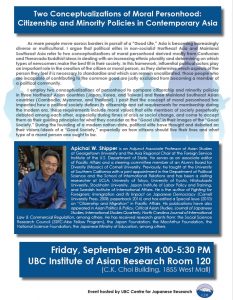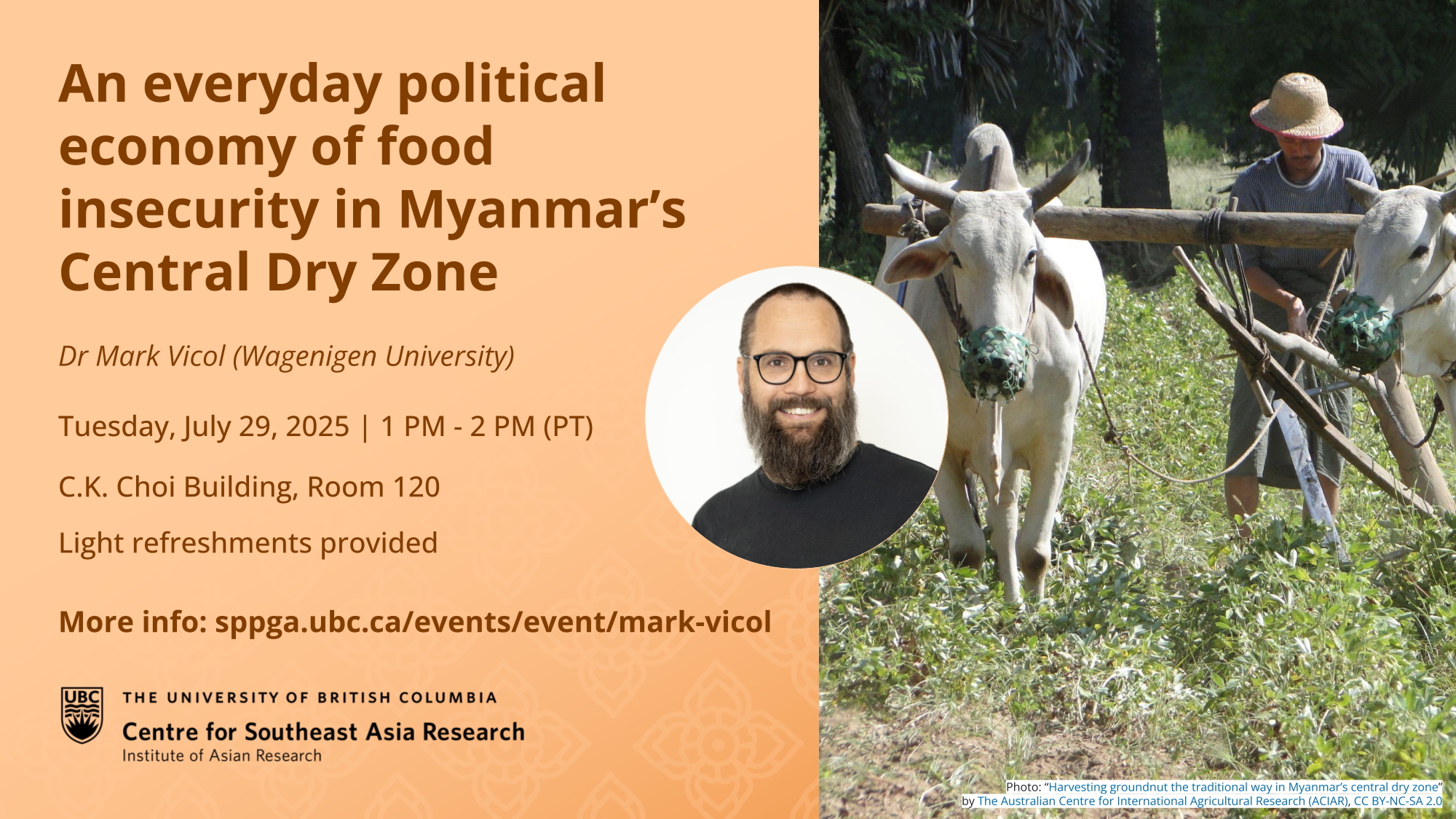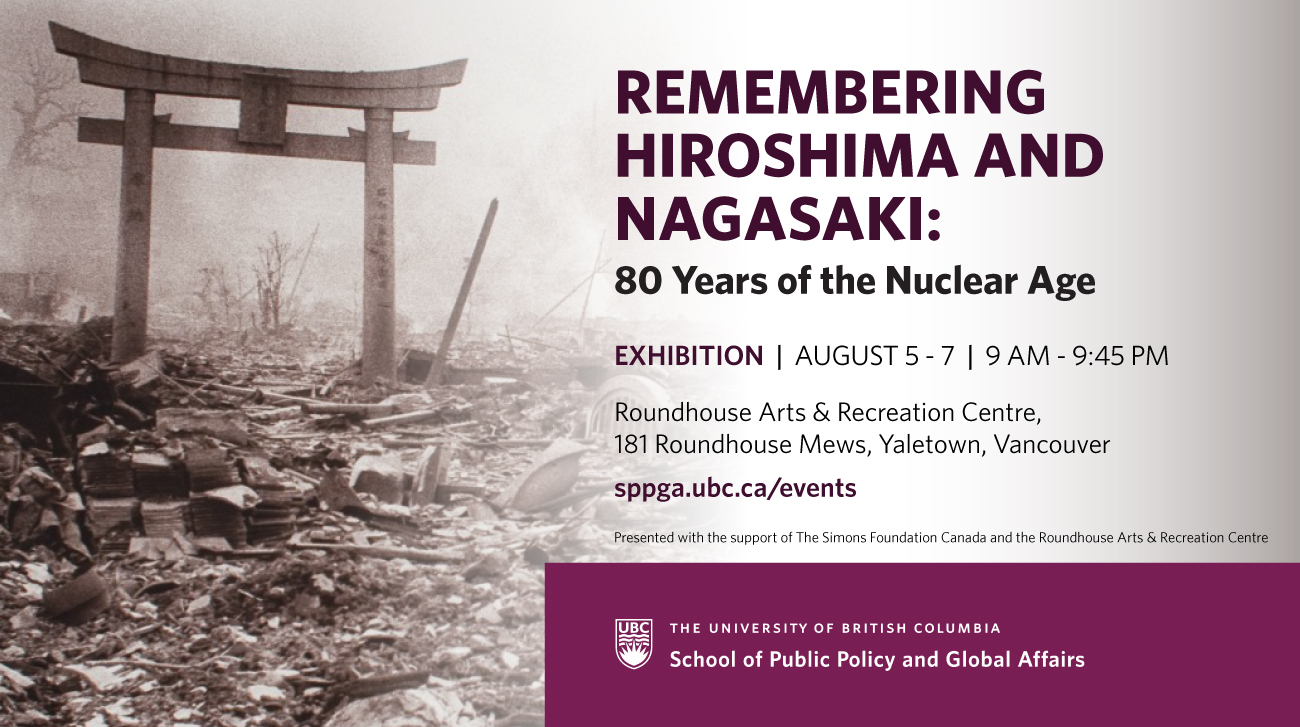As more people move across borders in pursuit of a “Good Life,” Asia is becoming increasingly diverse or multicultural. I argue that political elites in non-socialist Northeast Asia and Mainland Southeast Asia refer to two conceptualizations of moral personhood derived mostly from Confucian
and Theravada Buddhist ideas in dealing with an increasing ethnic plurality and determining on which types of newcomers make the best fit in their society. In this framework, influential political actors play an important role in the creation of the citizen or moral person, as they determine which aspects of the person they feel it is necessary to standardize and which can remain uncalibrated. Those people who are incapable of contributing to the common good are justly excluded from becoming a member of a political community. I employ two conceptualizations of personhood to compare citizenship and minority policies in three Northeast Asian countries (Japan, Korea, and Taiwan) and three Mainland Southeast Asian countries (Cambodia, Myanmar, and Thailand). I posit that the concept of moral personhood has impacted how a political society defines its citizenship and set requirements for membership during the modern era. These requirements include moral values that elite members of society perpetually debated among each other, especially during times of crisis or social change, and come to accept them as their guiding principles for what they consider as the “Good Life” in their images of the “Good Society.” During the founding of a modern nation-state, political elite have thought and debated on their visions/ideals of a “Good Society,” especially on how citizens should live their lives and what type of a moral person one ought to be.
About the Speaker:
Apichai W. Shipper is an Adjunct Associate Professor of Asian Studies at Georgetown University and the Asia Regional Chair at the Foreign Service Institute of the U.S. Department of State. He serves as an associate editor of Pacific Affairs and a steering committee member of an Alumni Board for Diversity (Mosaic) of Cornell University. Previously, he taught at the University of Southern California with a joint appointment in the Department of Political Science and the School of International Relations and has been a visiting researcher at UCLA, University of Tokyo, University of Kyoto, Hitotsubashi University, Stockholm University, Japan Institute of Labor Policy and Training, and Swedish Institute of International Affairs. He is the author of Fighting for Foreigners: Immigration and Its Impact on Japanese Democracy (Cornell University Press, 2008; paperback 2016) and has edited a Special Issue (2010) on “Citizenship and Migration” in Pacific Affairs. His publications have also appeared in Asian Politics & Policy, Critical Asian Studies, Journal of Japanese Studies, International Studies Quarterly, North Carolina Journal of International Law & Commercial Regulation, among others. He has received research grants from: the Social Science Research Council (SSRC-Abe Fellow Program), the Japan Foundation, the MacArthur Foundation, the National Science Foundation, the Japanese Ministry of Education, among others.



